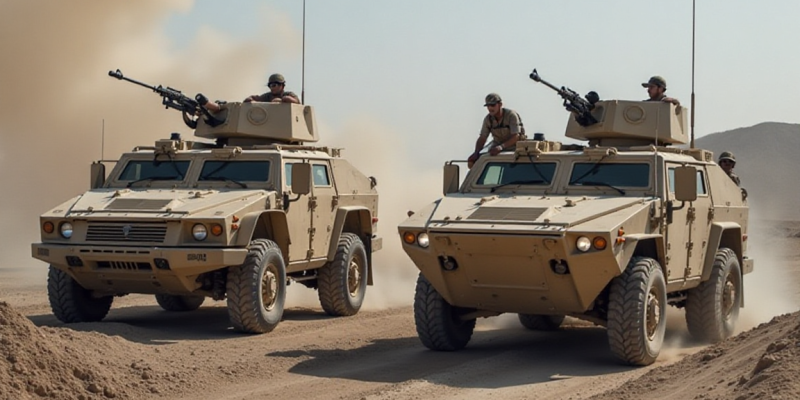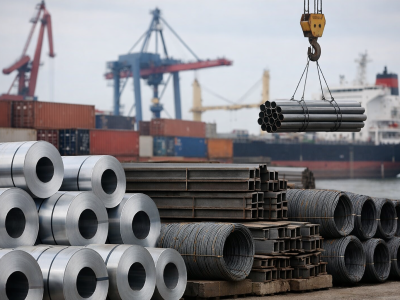
A wave of selling hit European defence stocks on Monday, as investors reacted to the United States launching coordinated military strikes on Iranian nuclear facilities in Fordo, Isfahan, and Natanz.
The escalation followed President Donald Trump’s announcement last Friday that a decision on military action would be made “within the next two weeks.”
The swift execution of that decision over the weekend triggered volatility across global markets, with the sell-off in Europe’s defence sector contrasting sharply with gains in several US-listed defence stocks.
German, Swedish, and French defence stocks lead losses
Major European defence contractors saw sharp declines as trading opened on 23 June.
Germany’s Rheinmetall dropped 4.13% in early trade, while Sweden’s Saab fell 3.25%. France’s Thales also slipped by around 5.40%.
Other names followed the same downward trend. Shares of Hensoldt and RENK Group in Germany also recorded losses.
Italy’s Leonardo and France’s Thales remained among the day’s biggest decliners.
However, Poland’s Lubawa bucked the pattern, rising 3.5% in early trade, making it the only major regional defence stock to trade higher.
US defence stocks rise after Iran airstrikes
While European defence shares slumped, several US-based defence firms posted modest premarket gains.
Shares of RTX Corporation and Northrop Grumman were up 0.53% and 0.62% respectively, while L3Harris and General Dynamics added 0.34% and 0.90%, respectively.
Lockheed Martin saw a 0.42% increase. Boeing and General Electric, both with more diversified operations, were the only US defence majors in the red.
The US airstrikes involved the deployment of GBU-57 Massive Ordnance Penetrators, developed by Boeing.
The bombs were delivered using Northrop Grumman’s B-2 bomber aircraft, highlighting the US defence sector’s direct involvement in the offensive.
Geopolitical risks shake global markets and currencies
The US-led strikes intensified concerns of a broader conflict in the Middle East.
Iran’s parliament responded by reportedly approving the closure of the Strait of Hormuz — a key maritime chokepoint for global oil trade.
Analysts at Maybank warned that such a move could prompt Iran to exit the Nuclear Non-Proliferation Treaty and cease cooperation with the International Atomic Energy Agency.
In the currency markets, the US dollar gained strength. The dollar index rose 0.3% by 8:25 am in London.
Meanwhile, traditional safe havens such as the Swiss franc remained flat, and the Japanese yen weakened significantly, falling 0.7% against the dollar, 0.5% against the euro, and 0.7% against the pound.
Bank of America analysts noted that Japan’s dependency on Middle Eastern oil — over 90% of its imports — makes the yen particularly sensitive to regional conflict.
They added that USD/JPY may serve as a hedge against further escalation.
Broader market impact and oil concerns
Across Europe, major indices opened lower. France’s CAC 40 led losses, down 0.99%, while Germany’s DAX slipped 0.88%, and Italy’s FTSE MIB lost 1.32%.
The pan-European Stoxx 600 index was down 0.62%, with most sectors in the red apart from oil and gas, which saw some gains amid rising crude prices.
Jeep maker Stellantis saw particularly sharp movement, falling 1.47% after announcing a new management team under CEO Antonio Filosa.
In Asia-Pacific markets, sentiment was also dampened by geopolitical tensions, with oil-importing economies such as Japan, South Korea, and India facing increased pressure due to energy price volatility.
The post European defence stocks plunge as US joins Israel in Iran strikes appeared first on Invezz










